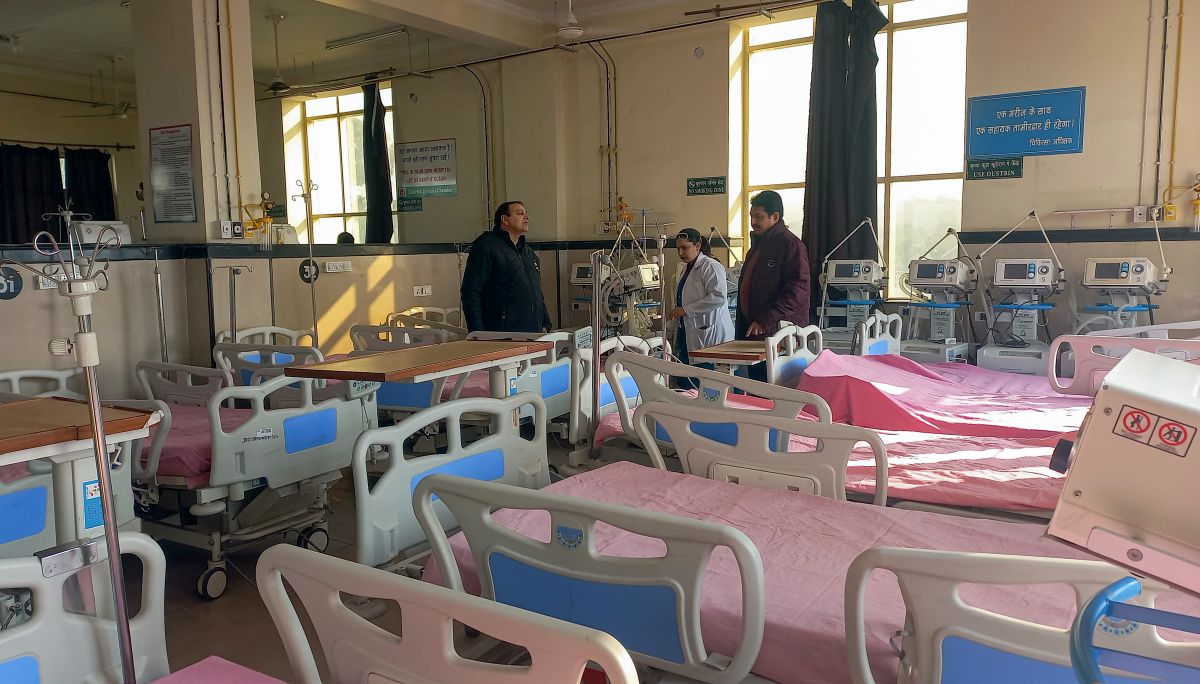Larger hospitals are not worried about a spike in cases, as they are now accustomed to converting ICUs and general wards into negative pressure zones or isolation rooms. For smaller hospitals, the task is tedious.
Sohini Das, Shine Jacob and Sanket Koul report.

India reported 412 new cases of Covid-19 in a single day, according to data shared by the health ministry on Tuesday.
The steady surge has prompted various states to step up preparedness as experts advise caution.
In Tamil Nadu, T S Selvavinayagam, the state director of public health, has told authorities to conduct surveillance of influenza-like illness and severe acute respiratory infections through the Integrated Health Information Platform, ensure functional RT-PCR facilities, test symptomatic patients and keep all public and private hospitals ready in case of a surge.
Earlier this month, Union Health secretary Sudhansh Pant advised all hospitals to conduct drills between December 13 and 17 and asked states and Union Territories to prepare for possible public health emergencies.
In a review meeting, Union Health Minister Mansukh Mandaviya also asked hospitals to conduct mock drills once every three months following the detection of the new JN.1 sub-variant.
In response, Selvavinayagam has asked officials to follow up with public and private hospitals in Tamil Nadu.
They have been told to check the functioning of all ventilators, pressure swing adsorption (PSA) oxygen generating plants, liquid medical oxygen tanks, medical gas pipeline systems and oxygen concentrators, besides stocking up essential drugs. Karnataka had decided to conduct mock drills even before the Centre directed the states to do so.
A Maharashtra government official said the state was now focusing more on RT-PCR testing.
As of December 22, Maharashtra has five hospital admissions including two patients in intensive care units (ICU).
Larger hospitals are not worried about a spike in cases, as they are now accustomed to converting ICUs and general wards into negative pressure zones or isolation rooms. For smaller hospitals, the task is tedious.
The owner of a 100-bed nursing home in Mumbai pointed to the question of viability. “Converting a ward into a Covid-19 ward or creating beds is not a problem for bigger hospitals. But for us, this is not viable as most patients now don’t need hospitalisation. It would mean acquiring more PPE kits, and other consumables for staff. This is okay during a wave, when there is a patient flow, but now it would be a financial stress for us.
While hospitals with a bed capacity of 300 or more have a separate oxygen plant to cater to patients, mock drills and similar drives leave smaller hospitals at a loss.
An official with a smaller hospital in New Delhi said that while bigger facilities had installed PSA plants for oxygen, those with a capacity of 100-150 beds may have to source oxygen cylinders during a crisis. An official at Delhi’s CK Birla Hospital said preparedness drives included stress on Covid-appropriate behaviour, protocols and staff training.
Bishnu Panigrahi, group head, medical strategy and operations, Fortis Healthcare, said that while the uptick in cases was primarily seen in the South, other regions need to be cautious as well.












 © 2025
© 2025